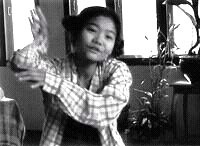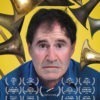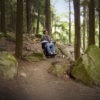
Acting | Company/Organization Profiles
Breaking the Silence
Written by Asa Pittman | Posted by: Anonymous
Risking her life to bring the horrifying tales of Southeast Asian prostitutes to Western audiences, documentary filmmaker Gayle Ferraro discovered the biggest challenge of producing her latest creation, "Anonymously Yours," wasn’t getting it made, but getting it seen.
Tape smuggling, doublespeak, dual identities, secret rendezvous, and exotic locales — Gayle Ferraro’s experiences while filmmaking in the Southeast Asian country of Myanmar sound like scenes from a James Bond movie. As she reminisces about making her latest film, "Anonymously Yours," Ferraro balks at the surrealistic quality of her memories, and laughs at the ironic circumstances that created them. She never bargained on becoming a spy or entering the underworld of foreign sex trafficking — let alone making a movie about it.
"I was on my way to do a film in India," Ferraro said of her first trip to the nation formerly known as Burma, where she filmed "Anonymously." She’d stopped in Burma (Myanmar), India’s neighbor to the south, to visit a friend and former classmate. The friend, a Burmese social worker, counseled women and girls liberated from lives of prostitution through government raids of local brothels. The stories of slavery, rape, and violence told by the freed prostitutes left Ferraro "shocked and upset." She vowed to change the horrendous conditions under which the women and girls lived by sharing their stories with American audiences. "No evil ever changed without awareness, public awareness and a dialog," says Ferraro.
Getting her cameras past the country’s governing military regime would be her first hurdle. Ferraro chose two women to assist her in her mission. In November 2000, the trio executed their plan to enter the country with their equipment undetected. "We decided we’d take a Canon XL-1 and a Sony DS-1000 as a second camera, and sound equipment," said Ferraro describing the scheme. "We broke everything down and split it up between myself, the camera person and the sound person. We went in on different days, different airlines, different routes. Then we met up in the country and reassembled everything and started working."
Once filming began, Ferraro realized the ominous nature of life in the intolerant dictatorship, and the danger she and her colleagues faced if caught disobeying its law. No stranger to fascist regimes, Ferraro had traveled extensively throughout Central America during the region’s dictator-led days of the 1980s, yet the social atmosphere of the Asian nation inspired an uneasiness outside anything she’d experienced in Latin America: "It was something very, very different and much more sinister because everyone was in doublespeak."
Through encrypted messages, Ferraro’s Burmese contact arranged interviews with four of her clients, to be held sporadically in isolated, rural locations as public venues proved too risky. Even ordinary civilians could be spies. Burmese authorities require that hotels and guesthouses furnish information about the identities and activities of their foreign guests. Burmese who interact with foreigners may be compelled, under consequence of torture or death, to report on those interactions to the Burmese Government.
Often traveling to restricted areas to meet their subjects, Ferraro and her crew devised a strategy for disguising the true nature of their visits. "Our whole disguise was tacky tourists. We tried to be as obnoxious as possible everywhere we went to cover for ourselves." Despite their precautions, however, Burmese officials detained Ferraro’s group twice — each time paralyzing the filmmaking team with fear. "I literally had no feelings I was so afraid," Ferraro said of one close call, "I could barely think or talk."
But she continued to film. With each interview, Ferraro gained a deeper understanding of the victims of the Myanmar sex trade and the social structures that supported it. "It’s big business," she said of sex trafficking in Southeast Asia, offering an example to illustrate her point: "On this fishing coast that’s shared between Burma (Myanmar) and Thailand there’s six major brothels with at least 100 rooms in them. That’s 600 rooms. The turnover is maybe a guy every hour, half-hour, around the clock… even if they’re paying a dollar per, and they’re not, that’s $2,500 an hour times 24." And brothels are just one of several sources of revenue for sex traffickers. "There’s hotels which are synonymous with brothels, there’s tea shops — every tea shop, restaurant, everything has a brothel in the back. You cannot operate any other way."
Ferraro rationalizes, however, why prostitution is so pervasive in one of the most impoverished nations in the world: "They don’t have theaters. They do not have even televisions or electricity. There is no other entertainment… There’s no education, there’s nothing." In addition to extreme poverty, she attributes the proliferation of the sex industry in Myanmar to a society of men looking to escape overwhelming family obligations. "Most people are married by the time they’re teenagers and by the time they’re in their late 20s they have five to eight kids. He never comes home to her anymore. There’s no food to feed the kids. All the men just hang out at the brothels. It’s just the cycle that is."
Finishing filming in December 2000, Ferraro faced another dilemma — getting the tapes out of the country without getting caught. "We didn’t know how we were going to get [the tapes] out. We were too scared to leave the country with them in our possession," Ferraro recounted. The group feared with good reason. While in a foreign country, U.S. citizens are subject to that country’s laws, regulations, and the consequences for breaking such mandates. Myanmar’s criminal justice system, under the control of the military junta, orders maximum sentences for all offences. During the same year Ferraro filmed "Anonymoulsy," a foreigner detained by Myanmar officials was tortured into surrendering his personal possessions to his jailers.
While the crew fretted over the seriousness of their predicament, salvation came from an unexpected and unlikely source. When a visiting, elderly relative of her Burmese friend asked Ferraro to take gifts to her daughter in the United States, the director got an idea: "I thought, oh my God, I can give these little tiny tapes to her and make a trade, and we don’t have to take the tapes out. A senior citizen woman is highly unlikely to be questioned." The elderly relative safely stashed most of the tapes, but a few remained for Ferraro to smuggle out. An over-sized tribal drum and crates of souvenirs hid the contraband. Ferraro used her acting skills to expedite the customs search. " I made this big fuss… They were so glad after half of a hour of dealing with me that they just let me go through with the last tapes."
Once she returned to the U.S., Ferraro worked feverishly getting the raw footage ready for editing. The task proved daunting Ferraro recalled, "I spent about four months just working on the material — like, how to organize it… how to make a story out of interviews and B role." With the help of editor Keiko DeGuchi, she managed to piece together an 88-minute film by the Fall of 2001, only to meet with another obstacle: distribution.
"For months an associate and I tried to get someone to take ‘Anonymously,’ and for six months we were rejected flat out," Ferraro said of her initial distribution attempts. The rejections seemed universal. "Everything from film festivals, to distributors, to TV stations, to individual theaters — just ‘no.’" When Ferraro questioned distributors about their rejections she received cryptic responses. "They didn’t want to tackle it. They said it didn’t fit." A novice filmmaker, Ferraro had produced only one short film before shooting "Anonymously." She surmised that the rejections were a result of poor filmmaking: "I thought it was the way I’d made the film –that it was childish, juvenile."
Then came an invitation to the 2002 Montreal World Film Festival. Ferraro’s film made its world premiere at the event, which took place August 22 through September 2, 2002. "The screenings were fabulous," Ferraro said of Montreal. "People were riveted." She described the Montreal viewing audiences as receptive but unprepared for what they were about to see. "Everyone was crying and sobbing, and ‘oh my gods’ all over the place. It takes a lot to sit through that film." Critics at the festival favored the flick as well. "Critics were saying it’s a powerful film if it can move people this way."
So grateful to show her film, Ferraro thanked the festival’s director for accepting her proposal. "The director said," Ferraro recalled, mimicking the puzzled look on the festival director’s face, "‘It was the quality of the film.’" The encouragement erased Ferraro’s doubts. "I have no hesitations about the film anymore."
According to Ferraro, requests for "Anonymously Yours" came pouring in after Montreal. The American Film Institute accepted the documentary for its film festival, November 7 – 17, 2002. Artists for Amnesty, a new program from Amnesty International, are interested in the film. And finally major distributors are taking notice. "Things are starting to happen with it," Ferraro said, smiling at the film’s newfound attention.
With "Anonymously Yours" taking off, Ferraro now has time to pursue other projects — like the film in India she put on hold to do "Anonymously." "I really want to get on with the next film," she said, "it’s about a hospice on the Ganges where people go to die."
After the India film, Ferraro has no plans. "I don’t know where my ideas are going to go next. If I like it, I really like it, and I’m gone."
For more information about 'Anonymously Yours' visit www.aerial-productions.com. The film will have its U.S. Premiere at the AFI Fest in November 2002. For more information, visit www.afi.com/AFIFEST/2002/











